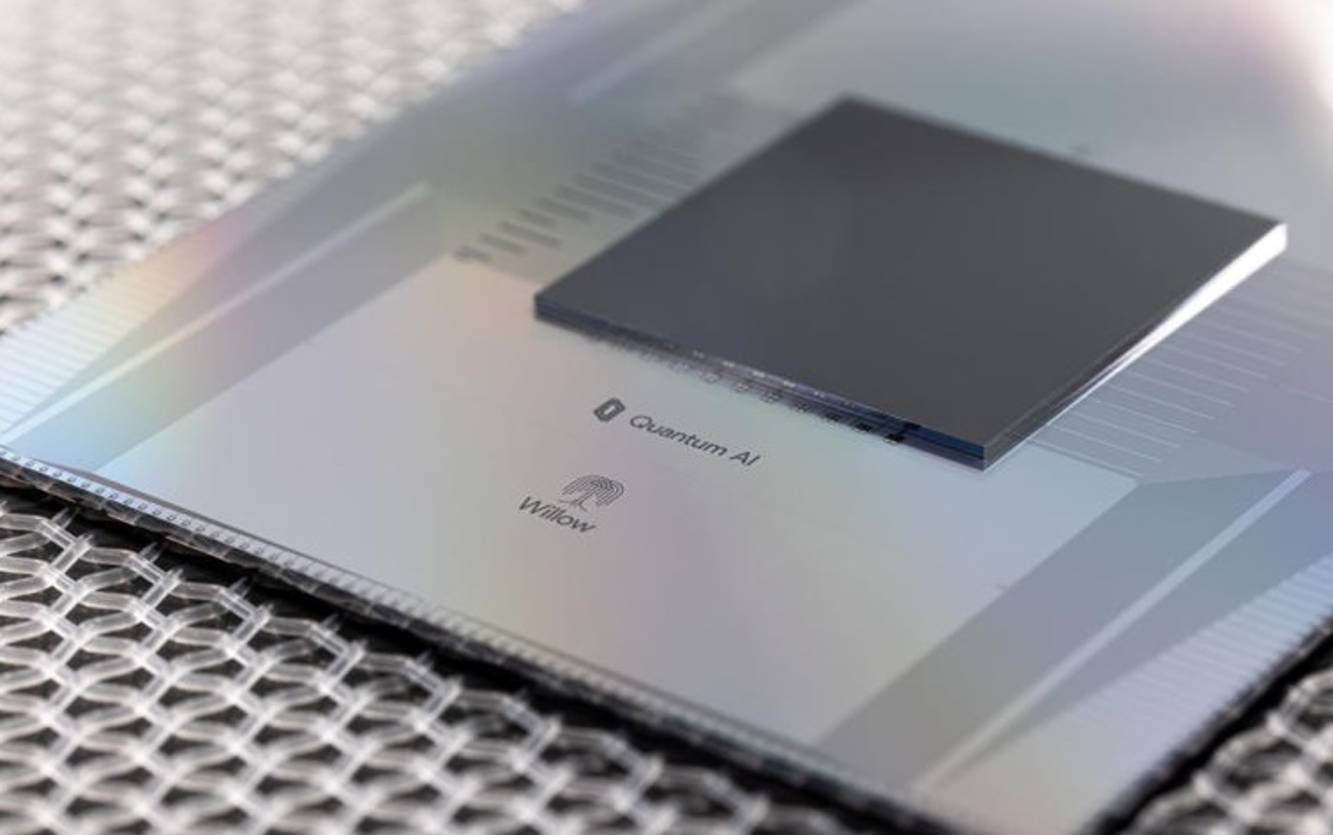On Monday Google unveiled a ground-breaking quantum computing chip, “Willow,” capable of solving problems in just five minutes that would take the world’s fastest conventional supercomputers a staggering 10 septillion years—a number far beyond the age of the known universe.
Ten septillion years is a timescale that is longer than the universe is old, and the findings demonstrate for the first time that quantum computers are able to complete tasks beyond classical computers.
Developed in Santa Barbara, California, Willow represents a significant leap forward in quantum technology, addressing a critical hurdle: error rates.
Its enhanced stability not only marks a milestone for quantum computing but also promises transformative applications, particularly in advancing fields like artificial intelligence.
Since 2021, quantum computing has been inching closer to mainstream applications, with some experts suggesting it could revolutionise industries such as drug development and battery design within the next five years.
Charina Chou, chief operating officer at Google Quantum AI, said, “These have been really excellent breakthroughs from the team, but they are steps along our journey to a quantum computer for otherwise unsolvable problems, and I want to emphasise this,”
“While this is an amazing project – it’s very fun, it’s a lot of cool science and engineering – the ultimate goal of our computer is to help to get to these otherwise unsolvable problems.”
Willow’s debut underlines the rapid pace of progress in this domain, sparking hopes for a future where computing power transcends current limitations and ushers in a new era of innovation.
Quantum computing, which leverages the principle that matter can exist in multiple states simultaneously, is poised to revolutionise industries with its unmatched processing power.
Experts predict it could fast-track breakthroughs like nuclear fusion reactors and enhance artificial intelligence’s role in medical science.
Google, for instance, envisions quantum advancements enabling MRI scans to be read at the atomic level, revealing vast new datasets for AI to analyse and potentially unlocking novel insights into human health and disease.
However, the technology isn’t without its challenges and risks. One major concern is quantum computing’s potential to render even the most advanced encryption methods obsolete, posing significant cybersecurity threats. Without proper safeguards, this power could undermine the digital infrastructure that underpins modern society.
“We see Willow as an important step in our journey to build a useful quantum computer with practical applications in areas like drug discovery, fusion energy, battery design and more,” said Google CEO Sundar Pichai on X.
Google Quantum AI is among several organisations, including Microsoft, Harvard University, and UK-linked Quantinuum, striving to overcome the hurdles of quantum mechanics.
A critical issue remains the fragility of quantum chips, which are highly sensitive to disruptions from material defects, cosmic rays, and ionizing radiation.
As researchers race to stabilise these systems, quantum computing inches closer to transforming our technological landscape—both for better and for worse.
Though still in its infancy, quantum computing is widely believed to hold the key to groundbreaking innovations across diverse fields. With the potential to revolutionize industries, quantum research has become a top priority for global powers.
The United States and China are leading the charge, investing heavily in quantum technology while Washington enforces strict export controls to safeguard its advancements.
Olivier Ezratty, a quantum technologies expert, estimated that private and public investment in the field has reached approximately $20 billion globally over the past five years.







